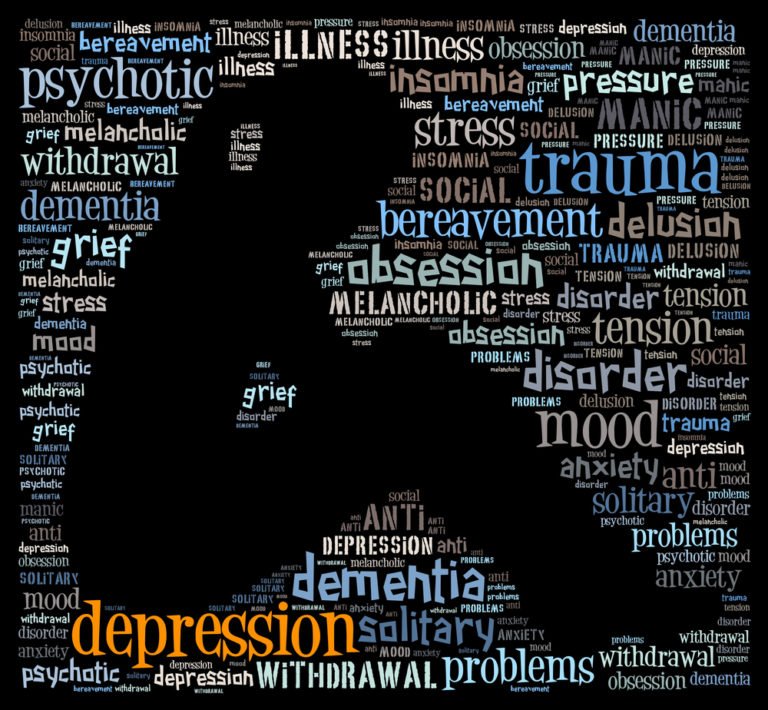
Living With A Mental Health Condition
If you have a mental health condition, you’re not alone. Every year people overcome the challenges of mental illness to do the things they enjoy. Mental illness can slow us down, but we don’t need to let it stop us.
If you have a mental health condition, you’re not alone. One in 5 American adults experiences some form of mental illness in any given year. And across the population, 1 in every 25 adults is living with a serious mental health condition such as schizophrenia, bipolar disorder or long-term recurring major depression.
As with other serious illnesses, mental illness is not your fault or that of the people around you, but widespread misunderstandings about mental illness remain. Many people don’t seek treatment or remain unaware that their symptoms could be connected to a mental health condition. People may expect a person with serious mental illness to look visibly different from others, and they may tell someone who doesn’t “look ill” to “get over it” through willpower. These misperceptions add to the challenges of living with a mental health condition.
Every year people overcome the challenges of mental illness to do the things they enjoy. Through developing and following a treatment plan, you can dramatically reduce many of your symptoms. People with mental health conditions can and do pursue higher education, succeed in their careers, make friends and have relationships. Mental illness can slow us down, but we don’t need to let it stop us.
Latinx Mental Health
Latinos are no different when it comes to prevalence of mental health conditions when compared to the rest of the population. However, your concerns or experiences and how you understand and cope with these conditions may be different.
This page focuses on the common challenges many Latinos face in seeking mental health care so that you know how to find help.d change attitudes.
Why Does Mental Health Matter?
Without mental health we can’t be healthy. Any part of the body—including the brain—can get sick. We all experience emotional ups and downs from time to time that are caused by events in our lives. Mental health conditions go beyond these emotional reactions to specific situations. They are medical conditions that cause changes in how we think and feel and in our mood. These changes can alter your life because they make it hard to relate to others and function like you used to. Without proper treatment, mental health conditions can worsen and make day-to-day life hard.
If you feel you or a loved one might be experiencing a mental health condition, remember that these are biological disorders. Anyone can develop a mental health problem. It isn’t you fault or your family’s fault. Seeking treatment can help you live a fulfilled life. Getting help is a way to strengthen yourself and your family for the future. Read More
Challenging Mental Health Stigma In The Black Community
By Hafeez Baoku | Jul. 27, 2018
In the black community, there is a negative stigma surrounding mental health. Instead of seeking professional help for conditions such as depression and anxiety, many in the community resort to self-medication (drugs, opioids, alcohol, etc.) or isolation in an attempt to solve their problems on their own. This issue of masking pain is especially prevalent amongst black men.
Speaking from experience, I know how black men grow up in culture that tells us “men are not supposed to cry,” that we “should deal with problems on our own.” This only enforces the idea that it’s not okay for us to say we are hurting inside. I’ve spoken to countless friends who, out of fear of being labeled as weak or less than a man, don’t want to acknowledge or vocalize any of their pains. This is true for me as well, as there have been moments in my life when I was afraid of sharing my true emotional well-being (or lack thereof) to close family and friends.
These are topics I talked about on my show, The Roommates Podcast. Due to my openness talking about mental health challenges, I received countless emails from young adult, black listeners who shared with me their struggles in the darkness. The more I used my platform to discuss topics relating to mental health in our community, the more others felt empowered to speak up and seek help for their own issues. This led to my desire to challenge stigma and bring light to mental health in the black community. Read More

